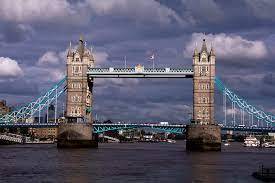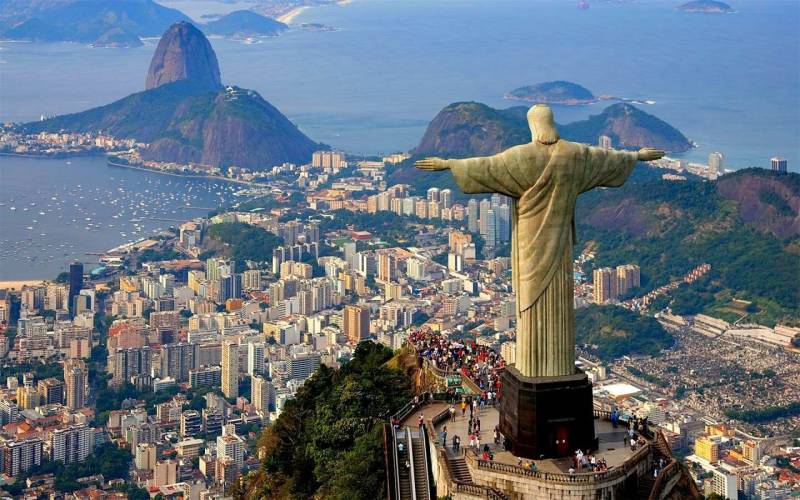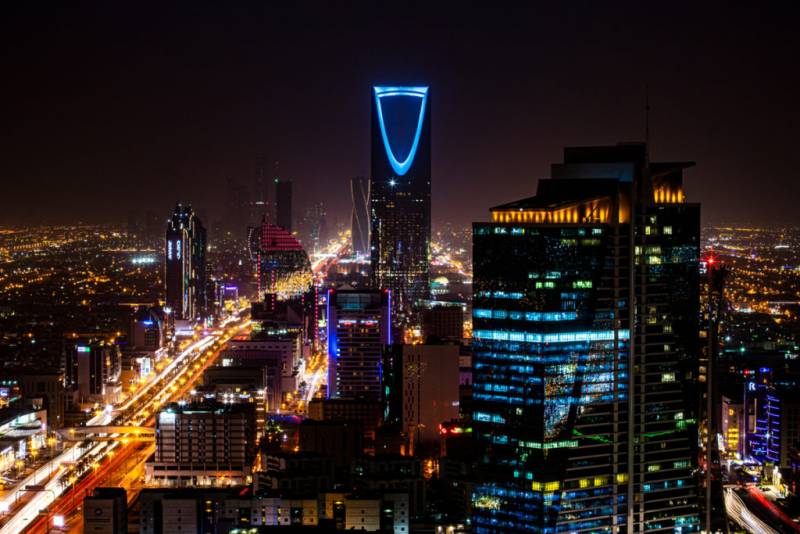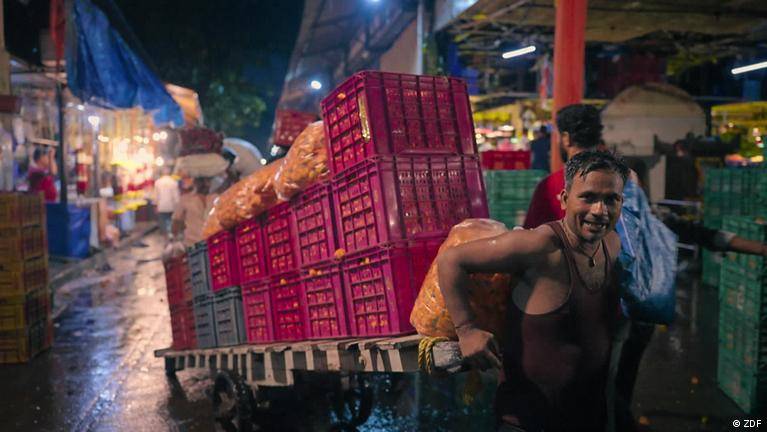Did you know that 35 different bridges cross the Thames Rivers in London, starting with Hampton Court in the west and finishing with Tower Bridge in the east? These 35 bridges are a mix of road, railway, and foot.
Before I moved to London I always thought of Big Ben and Buckingham Palace when I thought of London. I didn’t realise that bridges in London are such a big part of the city – and I also had no idea how stunning those bridges could be.
In such an urban environment which doesn’t have the best weather, being able to experience life on or near the river is one of London’s biggest delights.
This includes everything from charming pubs on the riverside in west London to heading down the Thames on the Clipper to getting the best views of the Thames and all those bridges from the Gong bar at the Shangri La Hotel in The Shard.
So here are 22 of the most famous bridges in London.
22 Bridges in London
1. Tower Bridge
Completed in 1894, Tower Bridge is perhaps the most iconic of all of London’s bridges. Let’s start with the fact that it is often confused with London Bridge, best known from children’s nursery rhymes.
Tower Bridge is quite beautiful whereas London Bridge is a bit more of a plain Jane. So London Bridge has the brand name fame but Tower Bridge is the supermodel in real life.
The bridge was originally painted in chocolate brown but in 1977 it was repainted in blue, white, and red for the Queen’s Silver Jubilee. It looked so fantastic that those colours have remained.
Tower Bridge is also famous for the fact that it is both a suspension and a drawbridge – and that it continues to lift every day. The bridge is 244 metres long and is 42 metres above the Thames. It is both a road and a footbridge and 40,000 people cross it every day.
Unsurprisingly, the bridge takes its name its neighbour the Tower of London.
Take a look behind the scenes at the famous bridge and discover areas such as the machinery room, which houses the hydraulic system that allows the bridge to rise for river traffic.
Best Ways to Experience London Bridge & nearby
Plan Your Visit to watch the bridge lift – check the website to find out the dates and times for scheduled bridge lifts.
Visit Tower Bridge – entry to Tower Bridge gets you into the engine room, up to some amazing views, and best of all access to the glass floor if you don’t suffer from vertigo. I highly recommend visiting the bridge for the views and that glass floor. NB: It’s handy to combine visiting Tower Bridge with the nearby Tower of London.
On the north side of the river, St Katherine’s Docks is a cute and quirky pier in the heart of London with shops and restaurants.
On the south side of the river is Butler’s Wharf which is also bustling with shops and restaurants.
Tower Bridge is at its most beautiful on a blue sky London day and as the sunsets.
2. Albert Bridge
Albert Bridge is my personal favorite London bridge as it is just so pretty – a word that I never expected to use to describe a bridge. It is painted in pink, blue and green and at night it is even more stunning as it is lit by 4000 light bulbs.
The bridge is part of the wonderful Illuminated River project. This long term art installation lights up to 14 bridges in London – many of which are in this post.
Albert Bridge was completed in 1873 and was a toll bridge for its first six years in existence. The octagonal toll booths remain to this day and it is the only London bridge with this feature.
It was also known as the trembling lady as it tended to vibrate when busy. Signs at either end still request that troops break step when marching across. This is due to the fact that the troops from the nearby Chelsea Barracks caused the most concern to the stability of the bridge.
The bridge is named after Queen Victoria’s husband Albert. The construction of the bridge was his idea. It connects Chelsea on the north bank to Battersea on the south bank.
Albert Bridge has had structural problems over the years. It is one of the only two road bridges in London that has never been replaced but it has been strengthened twice.
Take a stroll over Albert Bridge at night
On the north side of the river visit the lovely Chelsea Physic gardens. They are London’s oldest botanical gardens. There is a cute cafe but best of all they offer magical dining experiences in the summer which I highly recommend.
On the south side of the river, Albert Bridge meets the wonderful Battersea Park. This is a favourite park of Londoner’s so you’ll be sure to stroll or run past many locals. The London Peace Pagoda is an unexpectedly beautiful Japanese design in the park that is worth seeing
3. Chelsea Bridge
Chelsea Bridge was originally called Victoria Bridge. During its construction roman and Celtic weapons were found and it was thought this may have been where Julius Caesar and his army crossed the Thames.
The 1858 construction on the site was a river crossing. This was opened by Queen Victoria when she was on her way to the recently constructed Battersea Park. The name was changed to Chelsea Bridge once stability problems appeared.
The name Chelsea has ancient origins in the word Chelchith which means the landing place for chalk. Chalk was often used in fertilizer so may have been produced in this area. Very different from this area’s current upmarket inhabitants!
Chelsea Bridge was opened in 1937 by the Canadian Prime Minister at the time Mackenzie King. He was in London for the coronation of King George VI. At the time the construction was part of an initiative to drive employment for young men in the Battersea area.
The bridge is currently white with a red trim and blue on the balustrades. This colour scheme was adopted in 2007.
New Covent Garden Market is also nearby. This is one of London’s lesser-known markets – unless you work in hospitality or the flower industry. It is probably the most popular wholesale market in London. I believe one of the reasons that this market isn’t so well known to the general public is the opening hours – 4 am till 10 am.
4. Waterloo Bridge
The first incarnation of Waterloo Bridge was opened in 1817. It was to be called the Strand Bridge but when Napoleon was defeated by Wellington and von Blucher it was changed to Waterloo Bridge. It was opened as a toll bridge.
After structural problems were discovered in 1884 it was decided to demolish and replace the bridge. It was eventually closed in 1924.
A play called Waterloo Bridge opened in 1930. It was turned into a film in 1931 and then remade in 1940 starring Vivien Leigh and Robert Taylor. It is the story of a couple, a dancer and an army captain, who meet by chance on Waterloo Bridge.
Construction of the new bridge began in 1942 and finished in 1945. The new bridge was designed by Giles Gilbert Scott. He was also responsible for Battersea Power Station, the Bankside Power Station which is now the Tate Modern as well as the red telephone box.
The new bridge was nicknamed the “Ladies Bridge” as it was built mostly by women as construction took place during World War II.
Waterloo Bridge is the longest bridge in london at 1,230 feet long and it was the first to incorporate electric lights.
Best Ways to Experience Waterloo Bridge & nearby
Waterloo Bridge is located at a unique bend in the Thames river which means it offers amazing views of London – said by many to be the finest ground views of London. This is the place to get great photos of London – especially around sunset.
Both sides of Waterloo Bridge are filled with interesting things to do and see and places to eat.
On the north side of the bridge is lovely Somerset House – best visited in winter for its magical ice skating.
Covent Garden is only a short walk away on the north side of Waterloo Bridge as is the Temple area.
Crossing Waterloo Bridge to the south side will take you to the heart of the Southbank area with the National Theatre and the Hayward Gallery. There are loads of great restaurants and bars here as well as markets and activities.
For some fantastic views with a cocktail take a left when you cross the bridge and head to Oxo Tower.
5. London Bridge
There have been four different bridges at this location since AD 50. The current version of London Bridge was built in 1973. I certainly grew up with the nursery rhyme “London Bridge is Falling Down” – but was it?
The AD 50 bridge was a Roman pontoon. It was replaced in 55 AD with a piled bridge which was destroyed in 60 AD. This bridge was rebuilt but fell into disrepair after the Romans left.
The bridge was then rebuilt in 990 and destroyed again in 1014. A new bridge was rebuilt in 1067 and destroyed in 1091 by the London Tornado. It was rebuilt and destroyed by fire in 1136 (I am starting to feel like London Bridge is jinxed).
The next version was stone and built in 1173. It was destroyed by fire at each end over the next 300 years. A fun fact is that the south end of the bridge was used to display the head’s of dead traitor’s – I am very pleased to say that this is no longer the case.
A new bridge was built in 1831. This is the bridge that was dismantled and sold to an American millionaire in 1968. It was reassembled in Arizona (I really wonder why this was done). The “story” around this purchase is that the millionaire actually thought he was buying the far more attractive Tower Bridge – this remains unconfirmed.
The rather dreary current version of London Bridge was opened in 1973. So I have to be honest – this isn’t a stunning bridge but it is London Bridge so it really felt like I had to include it in this post.
Best Ways to Experience London Bridge & nearby
What London Bridge lacks in appearance it makes up for in location.
On the north side of the bridge are some fantastic London landmarks. Head up to the top of the Monument for some great views of London.
Visit one of London’s newest landmarks at Sky Garden. Book a time online and you can head up to the top and see the garden and the views for free.
Walk another block or so and visit one of my favourite spots – Leadenhall Market. This building has stunning interiors and contains some very authentic English pubs. It is still an extremely popular watering hole for London’s finance industry.
The south side of the London Bridge is just as good. First up is the fantastic Borough Market. This London institution is a brilliant place to visit and an even better place to eat. There is every type of fabulous food you can imagine on offer and the quality is high. Consider taking a London Food Tour.
Another favourite spot is The Shard. Don’t spend the money to go to the top of the Shard. Instead, go to the beautiful Shangri La hotel and head up to the Gong Bar, the highest hotel bar in Europe and the highest bar in London on the 52nd floor. Spend your money on a cocktail instead and check out the view. Sunset is the best time to visit.
london food tours
The Shard bursting from London Garden
⇒ Heading to London? Check out my posts on 13 Unusual Experiences in London, the best London Food Tours, my virtual London Travel Blog, some great Earlsfield restaurants, 14 Things to do in Notting Hill, restaurants near Clapham Junction and Victoria Station restaurants, 16 Famous Landmarks in Europe, a mad hatter afternoon tea party and a day trip to Brighton, 67 Fascinating Facts about London, 18 Landmarks of London from a local, 15 Places to see Sunsets in London, 9 Places to watch the Sunrise in London, 10 Bridges in London Not to Miss and Cotswolds tour from London options.
6. The Millennium Bridge
The Millennium Bridge is perhaps most famous for opening and closing within 48 hours. The construction of the bridge managed to hit the timeline of opening in the year 2000 but due to its swaying and wobble it was closed within 48 hours – and only re-opened two years later.
This is London’s newest bridge and its only bridge that solely allows foot traffic.
millennium bridge and st pauls
millennium bridge and st pauls
A competition was opened to architects in 1996 to design the bridge that would open the 21st century in London. An extremely modern design was chosen for this suspension bridge. It was deliberately built at a low level to avoid ruining the stunning views of St Paul’s Cathedral.
The bridge also features chewing gum art. These are miniature paintings on discarded chewing gum created by Ben Wilson.
The Millennium Bridge appeared in Harry Potter and the Half-Blood Prince where it is targeted by death eaters. The death eaters actually successfully destroy the bridge but only on film.
milennium bridge to st pauls
The shot from Millenium Bridge to St Paul’s Cathedral
Best Ways to Experience the Millenium Bridge & nearby
Walk over it. There are some terrific views. If you start your walk on the south side of the Thames this is also famously fantastic photography of St Pauls Cathedral with the bridge in the foreground.
The south side of the Millenium Bridge offers plenty of cultural opportunities with the Tate Modern and The Globe Theatre.
On the north side of the bridge is of course St Paul’s Cathedral.
⇒ Planning a trip to England or Wales? Don’t miss my posts on the 40 Top English Landmarks, The Crown Filming Locations, Most Beautiful Castles in Cornwall and Boutique Hotels in Cornwall, Boutique Hotels in Kent, Where to Stay in the Cotswolds, 61 Magnificent Landmarks of the UK, Places to Visit in South Wales, Fun Things to do in Cardiff, Luxury Hotels in Yorkshire, Spa Hotels in the South West, Day trip to Brighton, Things to do in Exmouth, Cafes in Exeter, Pubs with Rooms in the New Forest, Ockenden Manor Spa and the Best Things to do in Winchester.
7. Westminster Bridge
The first Westminster Bridge opened in 1750 and the second in 1862. It is the oldest road bridge across the Thames in central London. The name of course relates to nearby Westminster Abbey.
westminster bridge and big ben at night
The bridge was pained in the same shade of green as the color of benches inside the Houses of Common which are located on the north side of the bridge. The bridge is part of the UNESCO World Heritage Site of the Palace of Westminster and is a Grade II listed structure.
A popular urban legend is that Jack the Ripper threw himself off Westminster Bridge at midnight on December 31, 1891, as he thought he was about to get caught. As we don’t know who Jack the Ripper was we don’t know if this is true – but it makes for a good tale.
Best Ways to Experience Westminster Bridge & nearby
Check out the views. This is the place to get the ultimate Big Ben photo as well as a great shot of the London Eye. The views north, south, and east are all great.
The North side of the bridge has several of London’s top attractions in a small space. In addition to Big Ben, there are the Houses of Parliament and Westminster Abbey.
Only a block or so away is 10 Downing Street and my personal favourite London tourist attraction Churchill War Rooms which includes a Churchill museum.
westminster bridge
westminster bridge
⇒ Heading to Scotland? Check out my Scotland Itinerary 10 Days, Scotland Itinerary 7 Days, Glasgow Tours, Edinburgh vaults tour, things to do in Dumfries and Galloway, things to do in Ayrshire, my guide to Climbing Ben Nevis, 11 Places to Experience the Sunset Edinburgh style, 11 Best Spots to See the Sunset in Glasgow, 18 Beautiful Places in Scotland and 9 great Spa Breaks Scotland.
8. Hammersmith Bridge
Hammersmith Bridge is a personal favourite as it is close to home. However, unfortunately it is currently closed to all traffic eg including foot traffic. There is a substantial cost required to re-open the bridge which various government bodies are now fighting it out not to fund.
However, this stunning bridge can still be admired. Hammersmith Bridge was the first suspension bridge over the Thames. It was first opened in 1827 and the current bridge opened in 1887. Today’s bridge uses the same pier foundations as the original bridge.
Best Ways to Experience Hammersmith Bridge & nearby
The north side of Hammersmith Bridge is one of my favourite areas to appreciate the Thames whilst having a nice meal. Head east to Sam’s Riverside for a more modern eating experience on the Thames.
Or head west and you’ll find several cute and historic British pubs like The Blue Anchor and the Rutland Arms where you can virtually have a pint on the Thames.
On the south side of the bridge is the lovely London village of Barnes. Head due south and you’ll reach the London Wetlands Centre.
Or head west to the heart of Barnes and the lovely Barnes Green with its pond. This area boasts a great Farmers Market on a Saturday and a Rick Stein restaurant plus the cosy upmarket cinema Olympic Studios.
9. Putney Bridge
The first Putney Bridge opened in 1729. It was wooden and was known as Fulham Bridge at the time as it connects Putney and Fulham.
In 1795, a feminist writer called Mary Woollstonecraft jumped off the bridge when discovered that her husband was an adulterer. She was rescued and went on to get rid of her cheating husband and to marry William Godwin. Their daughter Mary went on to write Frankenstein.
In 1886 the bridge took its current arch form and it was widened in 1933. One of the things for which Putney Bridge is best known is that it has been the starting point for the annual Cambridge and Oxford University Boat Race since 1845. There is a stone marker for the actual start line 420 feet upstream of Putney bridge.
Putney Bridge is also the only bridge in London that has a church at each end. On the northern Fulham side is All Saint’s Church – this was the church which featured in the movie The Omen.
On the south side is St Mary’s Church in Putney which is home to a great Farmer’s Market on Saturdays.
Best Ways to Experience Putney Bridge & nearby
Putney Bridge is a road bridge but also has quite a wide pedestrian walk area on each side which is nice for strolling.
On the northern side of the bridge is Bishop’s Park, Fulham Palace and Fulham Football Club.
On the southern side, head west for one of the loveliest parts of the Thames Walk. Strolling between Putney and Barnes you will swear you are in woodland rather than Central London.
Putney High Street is a busy shopping and dining street. To the east is the very cute Wandsworth Park which sits on the edge of The Thames and is a great spot to watch the extreme tides of the Thames ebb and flow.
10. Battersea Bridge
Battersea was originally referred to as Badrices leg which means the island of Badric. The Thames used to be much wider and shallower so there were islands where there is now solid blocks of land.
Battersea Bridge was built in 1890, replacing the last wooden bridge on the Thames. It is the narrowest road bridge over the Thames – and may I say that the traffic is always terrible on this bridge.
Built in 1890, Battersea Bridge is the narrowest road bridge over the Thames. Before the current bridge was built, the river could be crossed at this point by the very last wooden bridge on the Thames.
Best Ways to Experience Battersea Bridge & nearby
This narrow bridge is rather busy so not so pleasant to walk across.
On the north side of the bridge, a short stroll up Beaufort Street will take you to King’s Road and loads of good restaurants and gorgeous boutiques.
The Bletchley, London’s fantastic World War 2 bunker bar which is one of the more unusual experiences in London, is just west.
On the southern side of the bridge, head East for Battersea Park.
Take the first right when you cross the bridge heading south for Battersea Church Road. This little road has some great little hidden gem restaurants.
On the southern side head east along the Thames Path to see a lot of exciting new construction in London including the Battersea helipad.
11. Southwark Bridge
Southwark Bridge links the south bank with the City of London. It has the least amount of traffic of any London bridge and is the closest bridge to The Globe Theatre. This arch bridge opened in 1921 and is sometimes known as the carpark bridge as coach drivers use it to park their buses.
12. Blackfriars Bridge
Blackfriar’s bridge was opened in 1869 by Queen Victoria. It links the Tate Modern museum with the Inns of Court. The bridge was named after an earlier bridge that was used by the Dominican Order of friars who wore black habits rather than the standard brown.
13. Hungerford Bridge and the Golden Jubilee Bridges
Hungerford Bridge was originally designed for foot traffic but is now a railway bridge. The Golden Jubilee bridges lie on each side of Hungerford Bridge and are pedestrian bridges. If you walk from Trafalgar Square and cross of the Golden Jubilee Bridges you will be taken to the London Eye and the south bank.
14. Lambeth Bridge
The five arch Lambeth Bridge was opened in 1932 by King George V and Queen Mary and is perhaps one of the least attractive to the bridges in London. However, it does afford excellent views of Big Ben, the Houses of Parliament and the London Eye. Lambeth Bridge’s arches are red, based on the red seats of the House of Lords nearby.
15. Vauxhall Bridge
A red and yellow bridge that can’t be missed, Vauxhall Bridge links Pimlico on the northern side with the not very exciting Vauxhall on the southern side of the Thames.
16. Wandsworth Bridge
This blue bridge was built in 1940 and is one of London’s busiest road bridges. It was designed by Sir Peirson Frank and the blue colour is said to have been chosen to help camouflage the bridge in the event of air attacks.
17. Chiswick Bridge
Opened in July 1933, Chiswick bridge links Chiswick in the west and Mortlake in southwest london together. The bridge was designed by Sir Herbert Baker and has five arches, although only two are over the Thames. It is virtually the finish line of the University Boat Race and lovely Chiswick House is nearby.
18. Kew Bridge
The current Kew Bridge is the third version and was opened in 1903. It has three long stone arches which span the Thames and connects Brentford in the north to Kew Green in the south. Kew Gardens is just a short walk from Kew Green.
19. Twickenham Bridge
Twickenham Bridge was opened in 1933 on the same day as Chiswick Bridge. It was designed by Maxwell Ayrton who also designed Wembley Stadium. It connects St Margarets and Twickenham on the northern side of the river with Richmond on the south side of the Thames.
20. Richmond Bridge
The oldest surviving of all the Thames bridges, Richmond Bridge was built between 1774 and 1777 to replace ferry crossings. Today, the south bank is filled with pubs and cafes with lots of outdoor seating. It is a busy spot on a nice day and a great place to watch a London sunset.
21. Kingston Bridge
Kingston Bridge connects Kingston with Hampton Wick. It is a Grade II listed stone road bridge and today is 79 feet wide.
22. Hampton Court Bridge
The last of the Greater London bridges, Hampton Court Palace was also opened on the same day in 1933 as Chiswick Bridge and Twickenham Bridge – a big day for bridges in London. As you may have guessed, Hampton Court Bridge crosses the Thames from Hampton Court Palace. The red brick of the bridge was chosen to fit in with the Palace.
Hampton Court Bridge
⇒ Here are some of the best places in the world to watch the sunrise and fall: 10 Places to watch the Sunset in California, 7 Best Places To Watch Sedona Sunsets, 18 Spectacular Spots for the Best Sunsets in Seattle, 5 Stunning Santorini Sunsets, 8 Sunsets in Ibiza, 19 Spots to watch San Diego Sunsets, 11 Places to see the Venice Sunset, 17 Key West Sunsets Spots for Great Views, 15 Best Places to see San Francisco Sunsets, 6 Spots to Watch Sunrise in Paris, 21 Spots to see the Sunset Ottawa Style, 9 Best Places to see Maui Sunsets, 11 Places to see Sunset Edinburgh style, 16 Places to see the Best Sunsets in the World, 18 Best Places to watch the Sunset in Melbourne, 11 Best Spots to watch the Sunset in Glasgow, 15 Places to see Sunsets in London and 9 Spots to watch the Sunrise in London.
The Best Way to See London’s Bridges
All of these bridges can be visited on foot. But the best way to see London’s Bridges is from the Thames itself. There are two great options.
The first is to take a river cruise. This will allow for the best photo opportunities as the boats have been designed for this. Check out City Cruises. Their cruises depart every 30-40 minutes, run from 3 piers (Westminster, London Eye and Tower Pier) and have fully stocked bars and cafes.
The second option is less expensive and an opportunity to live like a local – take the Thames Clipper. The Clipper is the fastest and most frequent fleet on the Thames.
This is what locals use as a way to get to work and around London. When I lived in Putney I had three months of taking the Clipper to work each day in Blackfriars and I just loved it.
There are lots of stops and the cost of a ticket is not much more than taking the tube. The environment couldn’t be more different from the tube – the seats are big, clean and comfortable. It is generally quiet and there is no standing. And best of all there is a bar serving coffee, snacks and wine.
Whichever option you take, I highly encourage you to take your London Bridges cruise around sunset. My personal opinion is that this is when London’s Bridges are at their most beautiful.
Boutique Hotels in Londons
Artist Residence is located in Pimlico which is fabulously central. It is in a gorgeous 5 store regency building and has a cute bar.
The Portobello Hotel is located in one of London’s best known and cutest neighbourhoods Notting Hill. This is also the hotel where Kate Moss and Johnny Depp filled up the bath with champagne. The hotel is located on a quiet street but is a great location.
Notting Hill London Portobello hotel entrance
Entrance to The Portobello Hotel
The Great Northern Hotel is ridiculously close to Kings Cross and St Pancras stations which is incredibly convenient. The hotel dates back to 1854 but has had a major refurb so it feels fresh and modern.
The Hoxton hotel is in the heart of East London in Shoreditch and a perfect base for exploration. The rooms aren’t huge but the location makes up for it – as does the great value for London with rooms starting at £99 a night.
SOURCE : theboutique




